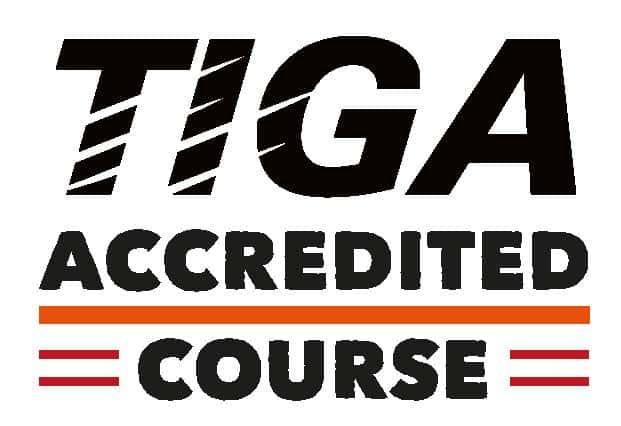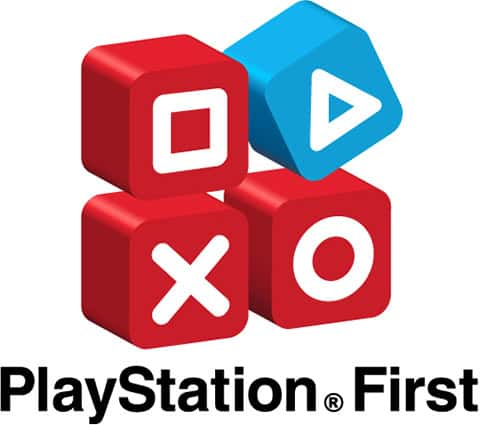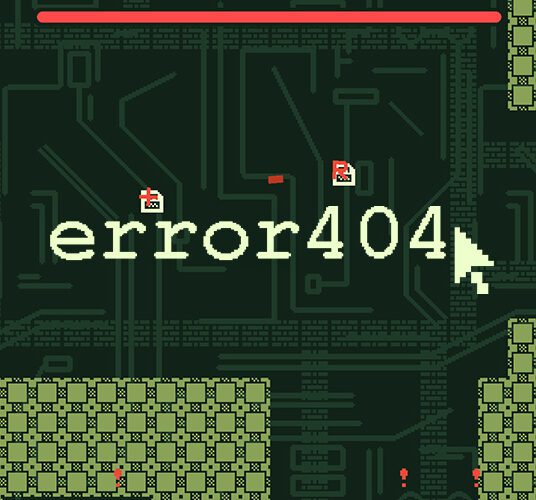

Games Development BSc (Hons)
Length:
3 or 4 year options
UCAS Code:
I610 (3 Year)
I611 (4 Year)
Institution Code:
N39
Sandwich courses:
Creative Professional Development (1 year, Level 5 diploma), or Creative Computing (1 year, Level 5 diploma), available between years 2 & 3
Love working with code and see yourself as a technical problem solver with a passion for games?
Our TIGA-accredited BSc (Hons) Games Development course has an industry reputation for its technical game development content, providing knowledge and experience to support graduates being hired into ever-increasing and sought-after programming roles within the industry.
You will explore the mechanics of playful interaction and develop skills in prototyping and user testing across different technologies and platforms, including console, web, mobile, PC and cutting-edge technologies like augmented and virtual reality.
How you think, make decisions, and develop ideas will evolve as you learn to code games that give users an exceptional experience by applying computer science principles and staying attuned to emerging technologies. You’ll create different types of games for different audiences based on evidence gathered through research, observation and practical experimentation.
Beyond technical proficiency, the BSc Games Development course places a strong emphasis on fostering creativity and innovation. You will acquire and develop the creative tools necessary to develop unique and innovative games, with a parallel focus on understanding how to make these creations commercially successful. You’ll get a thorough grounding in the business aspect of games development, learning how to distribute and licence games products as an independent producer.
Accredited by:


- This course is accredited by TIGA (Independent Game Developers’ Association) as delivering skills relevant to the games industry.
- The course is a member of the Sony PlayStation First Academic Partnership Programme.
Why study with us
- The Rookies, a global panel of games industry experts, ranked Norwich University of the Arts in the world’s top 30 in 2023 and also placed us 29th for Game Design and Development in their global rankings.
- Study the fundamentals of game development, with Unreal Engine at the core.
- Collaborate with students on BA (Hons) Games Art and Design to make games that bring your technical abilities together with their artistry using content creation software for a range of platforms.
- Be introduced to formative theoretical concepts while developing your critical thinking, analysis and communications skills.
- Develop prototyping, user testing skills and gain an understanding of workflows and project management.
- Workshops, technical demonstrations and live briefs will help prepare you for a career in the games industry.
- Be involved in games jams, and live briefs both within Norwich and internationally to enhance your graduate portfolio.
Course Content
Year 1
- Gain core Games Development skills through the design and development of a 2D game for a specific platform and audience
- Research and develop aspects of game interface design through the application of digital design principals and frameworks
- Learn the fundamental skills associated with software engineering for games and build core technical competency
- Undertake development projects using industry standard practices and frameworks, incorporating relevant coding languages and libraries
- Develop techniques for the collection and analysis of user interaction data and explore industry standard research methods
- Develop prototyping, user testing skills and gain understanding of the role of cognitive science within game design
- Develop awareness of the digital project lifecycle, key milestones and processes by designing and developing a fully functional web-based game project.
Year 2
- Gain a deeper understanding of applied games development through the design and development of a 3D game for a specific platform and audience
- Work within an industry standard integrated development environment (IDE) to develop more sophisticated programming techniques
- Examine the principals of physics and mathematics that underpin games to simulate real-world environments
- Examine the principles of data structures to push the boundaries of what is possible in 3D.
- Investigate the use of algorithm and system design within the context of games
- Identify and develop a technical specialism and area of interest
- Deepen your project management experience using digital tools for developing and tracking progress, delivery and results
- Develop awareness of issues concerning professional practice, funding structures, curation/display, enterprise and entrepreneurship
- Consolidate and develop games testing processes.
Year 3
- Develop advanced technical skills and demonstrate proficiency in your chosen specialism
- Undertake work with non-traditional interface technology to deliver an experience to the player, e.g. using augmented reality, virtual reality or motion sensing
- Opportunities to pitch ideas to industry professionals
- Develop awareness of how to publish, license and create profitable games
- Refine and apply advanced research skills toward the completion of a final project that will demonstrate craftsmanship and mastery of games development techniques as you enter the industry.
Careers Information
Games at Norwich has received international recognition celebrating our innovative teaching methods and approaches. Our students have also seen success in their careers and pursuits while studying and beyond. Graduate employers include Rebellion North, Creative Assembly and Free Radical Design.
Typical career paths include
- Game Programmer
- AI Programmer
- Games Developer
- Software Developer
- Audio Programmer
- Technical Artist
- Tools Development
- Systems Development
- Pipeline Development
- Engineer
- Producer
You’ll also get specialist creative careers advice from our Business and Employability Team to help support you as you plan your career.
Oli Paul – Dog Walking Simulator
Tabbed Section
Typical UK offers
A / AS Levels – GCE
GCE A/AS Levels 3 A-level qualifications at grades BCC (104 UCAS Tariff points) or above. Where candidates are not taking 3 A-levels, Norwich University of the Arts will consider combinations of A-level/AS-level and other Level 3 qualifications.
BTEC Extended Diploma (QCF or RQF)
Distinction, Merit, Merit in an art, design or media related subject
BTEC Diploma (QCF or RQF)
Distinction*, Distinction* in an art, design or media related subject
T Levels
A T Level in any subject with overall grade Merit or above
UAL Extended Diploma
Merit
UAL Level 3 Foundation Diploma in Art and Design
Pass
UAL Level 4 Foundation Diploma in Art and Design
Pass
Foundation Diploma in Art and Design
Pass
Access to Higher Education Diploma (Art and Design)
Pass
International Baccalaureate Diploma
A minimum of 26 points
Norwich University of the Arts welcomes applicants of all ages from all backgrounds. Your application will be primarily assessed through your portfolio (if required), responses to questions asked and personal statement, so even if you have no formal qualifications or do not meet our typical offers it can still be worth applying.
If you are studying at the time of your application and your application is successful it is likely that you will receive a conditional offer.
If the qualification that you are studying is not shown, do not worry as we are able to accept other pre-entry qualifications as well as combinations of different qualifications. Please do contact our Student Recruitment Team if you have any queries.
International applications
We accept qualifications from all over the world. To find our entry requirements from a specific country, please check our dedicated international pages.
Most international students are required to hold an English language qualification. Applicants are required to have a minimum UKVI approved IELTS exam score of 6.0 overall, with a minimum of 5.5 in each section. Equivalent English language qualifications are acceptable such as, IB English language syllabus A or B/English Literature (Grade 4).
We also accept some alternative English qualifications. Learn more about our English entry requirements.
You can email us on international@norwichuni.ac.uk if you’d like to discuss your application individually.
2024/25 University fees for new entrants
Norwich University of the Arts will assess students’ tuition fee status using the guidance provided by the UK Council for International Student Affairs
Students from the UK or Ireland and EU students with ‘Settled’ or ‘Pre-Settled’ status will be charged ‘Home’ fees if they meet the relevant residency requirements. They will usually be eligible for a tuition fee loan from the UK government, meaning that they won’t have to pay Norwich University of the Arts’ tuition fees upfront.
Students who do not meet the necessary residency requirements will usually be charged ‘Overseas’ fees and will not be eligible for the UK government tuition fee loan. Since 2021/22, this includes new entrants from the EU, EEA, and Switzerland who do not have ‘Settled’ or ‘Pre-Settled’ status, because the UK has now formally left the EU.
| Fee status | Course | Annual fee |
|---|---|---|
| Home | Undergraduate degree (full-time three and four year degree) | £9,250 |
| Overseas | Undergraduate degree (full-time three and four year degree) | £18,000 |
Inflation in subsequent years
The rules for inflation on fees in subsequent years depend on the type of fee status and level.
- For Home undergraduate students starting in 2024, inflation may be applied to your fees in later years, if the UK government were to increase the fee cap beyond the current limit of £9,250 per year. If such an increase were to apply, we would confirm this in advance to you of each academic year, and we would limit the increase to the maximum allowed by the Office for Students.
- For Overseas undergraduate students starting in 2024, inflation will be applied to your fees in later years. We will confirm this in advance to you of each academic year, and we will limit the increase to no more than the Office for Students’ recommended inflationary measure, which is RPI-X. RPI-X is calculated by the Office for Budget Responsibility. In setting fees for the following year, we will use the Office for Budget Responsibility’s RPI-X forecast for quarter 3 of the relevant year.
For Home and overseas postgraduate degree students starting in 2024, fees will remain the same for each year of your course.
Financial support for UK students in 2024
Tuition fee loans and loans for living costs are usually available to UK and some EU students, as well as non-repayable Norwich University of the Arts bursaries based on family income. Find out more about applying for funding.
International students
We offer a range of scholarships for international students to support your studies with us.
- Group briefings
- Academic tutorials
- Group tutorials
- Lectures
- Workshops
- Critiques (crits)
- Seminars
- Finished pieces of work
- Presentations
- Written work
- Your research
- A reflective journal
Between Years 2 and 3 of this course, you’ll have the opportunity to undertake one of the following additional qualifications:
Creative Professional Development (1 year, Level 5 Diploma)
Our Creative Professional Development Diploma gives you the chance to spend a year exploring your post-uni job options through a structured programme of input sessions and work-based learning. This year offers two much-sought-after industry placements – the first lasting six weeks, the second 12 weeks, and a group project or ‘hackathon’ exploring freelancing and business start-up.
Creative Computing (1 year, Level 5 Diploma)
Our Creative Computing Diploma introduces you to coding and computational skills that will advance and complement your creative practice. No prior experience of coding is needed, just a curiosity about creative computing and a desire to push your own practice into new realms. You’ll also develop a wider knowledge of the creative tech industries, available roles and opportunities.
Integrated Foundation Year – BSc (Hons) Games Development
An Integrated Foundation Year offers students a chance to build on their experience within their undergraduate course of choice.
An Integrated Foundation Year will help to build confidence and develop subject specific practical, creative and conceptual skills – making full use of University studios and workshops.
Typical UK offers and entry requirements for Integrated Foundation Year entry
GCE A/AS Levels
2 A-level qualifications at grades CC or higher.
BTEC Extended Diploma (QCF or RQF)
Merit, Merit, Pass in an art, design or media related subject
BTEC Diploma (QCF or RQF)
Distinction, Merit in an art, design or media related subject
T Levels
Pass (D or E on the core)
UAL Extended Diploma
An overall Pass
UAL Level 3 Foundation Diploma in Art and Design
An overall Pass
Foundation Diploma in Art and Design
Pass
Access to Higher Education Diploma (Art and Design)
Pass
International Baccalaureate Diploma
A minimum of 24 points
Norwich University of the Arts welcomes applicants of all ages from all backgrounds. Your application will be primarily assessed through your portfolio, responses to questions asked and personal statement, so even if you have no formal qualifications or do not meet our typical offers it can still be worth applying.
If you are studying at the time of your application and your application is successful it is likely that you will receive a conditional offer.
Find out more about four year degrees at NorwichFacilities
News
@norwichuniarts
BA (Hons) Textile Design third year students have had their professional photoshoot with Denisa Ilie…
View this post

Norwich Student wins at Ukie Student Game Jam 2024
BA (Hons) Games Art and Design student Charlie O’Shea was awarded Best Moment-to-Moment Gameplay award for his game ‘error404’.
View news article

Claudy Woods
BA (Hons) Photography student Claudy Woods tells us about her experience attending the Year 3 London Portfolio crit, and how it has affected her work and practice.
View blog







